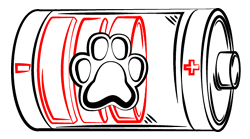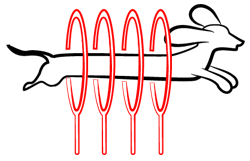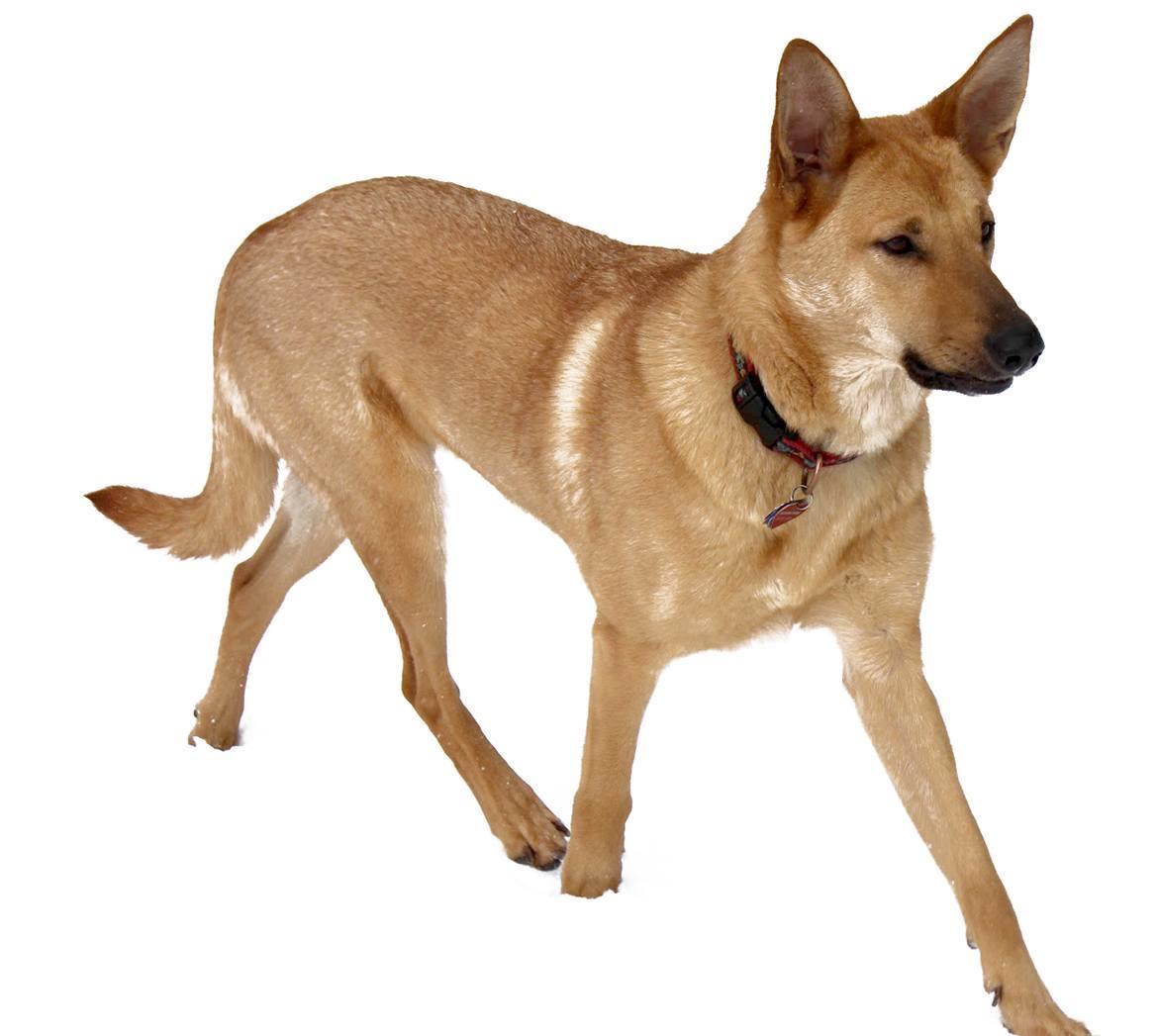
Paws ‘N’ Pups Quickview
Size
| Energy Level
| Trainability
| Paws ‘N’ Pups Rank
|
Characteristics
| Physical Characteristics: Height: 21-27” Weight: 55-90 lbs. Energy Level: Moderate – High | Colors: The American Kennel Club recognizes the Chinook in the following colors:
|
Health & Longevity
Average Life Span: 13-15 years
One of the rarest purebreds in the dog world, the Chinook is a snow-loving pup with excellent overall health. However, these pups are prone to developing the same health conditions, such as heart disease, distemper, parvo virus, or heartworms, that could develop in any dog of any breed. Chinooks fare well in cold weather, so their immune systems are often up-to-par to deal with the usual effects that extreme cold might have on the average immune health of a purebred. Unfortunately, their tolerance of cold weather makes them prone to a few health complications when they are in warmer conditions.
Skin Allergies/Dryness
For Chinooks, a drastic change in weather can lead to skin dryness, causing cracks, itchiness, redness, and hair loss. This could also open their immune systems to new allergies, resulting in severe inflammation and painful skin irritations. The symptoms are noticeable and prominent. If left untreated, it could lead to a worse, widespread infection that encompasses the entire body and ears. Treatment includes vet-prescribed antibiotics to treat infections, allergy-fighting supplements, and gentle, medicated shampoo.
Bloat
This condition occurs when fluid and gas become trapped in the stomach, causing the belly to twist and further, painfully allow the gas to build. Symptoms include a distended, bloated belly, lethargy, violent dry heaves, and excessive, painful urination. This condition is life-threatening and highly dangerous, so immediate treatment is required. Surgery is the most common form of treatment.
Other conditions that could affect the overall good health of your Chinook are hypothyroidism, juvenile cataracts, and bacterial skin infections, such as pyoderma or yeast. On average, a Chinook boasts a lifespan of 13 to 15 years.
Temperament & Train-ability
Chinooks are affectionate and loving pups, if a bit no-nonsense. They are well-bonded to their loved ones, but these dogs can be very protective. This could make meeting new friends a challenge. However, socialization is important to a Chinook, especially with children and other dogs. While mostly sweet by nature, these pups were bred to be serious and confident, which means their tolerance levels could use some work.
Training-wise, the Chinook is an obedient, smart pup with heaps of learning potential. His eagerness to please makes this pup an ideal participant during training sessions. However, to keep his attention trained on you, make each session challenging and exciting. This will give him something fun and active to look forward to.
When it comes to exercise, the Chinook dog would be best suited in a home with fitness-minded folks. These pups are very energetic and love to romp, play, and solve challenges. One great idea would be to turn his exercise time into a training session. Set up an obstacle course in a fenced-in backyard, then lead him through to see how long it takes for him to jump through the obstacles. Or, on slow exercise days, take him on 2-3 long walks around the neighborhood.
Grooming
Chinook dogs have dense, double-furred coats that shed quite a bit, especially in warm weather. These pups are used to cold temperatures, even a few below-freezing climates with lots of snow, so they are intolerant to most summertime heat. Brush his coat daily with a firm-bristled brush to pull excess hair and leave his fur shiny, healthy, and smooth. You should be able to feel the dense quality of his coat when you pat him. If you notice any abnormal hair loss, take your Chinook to the vet immediately for an examination to rule out a serious underlying condition.
Diet
Chinooks, bred to be sled dogs, have hearty, voracious appetites because their metabolisms are running on high burn. These pups are commonly trained to perform strenuous activities, so they need lots of food to energize their body and mind. Feed your Chinook twice a day with 2-3 cups of dry, high-quality food divided into two meals. If your Chinook seems to need more than average, or if you are simply curious about their nutrition, ask your vet how much food and what kind of kibble would best meet the nutritional needs of your pup.
Looking for a Chinook?
 Find A Chinook Breeder |  Chinook Puppies For Sale |  Adopt A Chinook |
Cost
As mentioned in previous sections, the Chinook is a rare purebred, commonly found in places with colder, snowy climates. It might be difficult to find a breeder for one of these pups, but you could always check the local animal shelter for leads. Animal shelters often keep in contact with other shelters, so your local rescue may be able to locate an adoptable Chinook. Or, you might get lucky, and your local shelter could have a Chinook available for adoption. In which case, adoption fees are in the ballpark of $75 to $250. Add on vaccination updates, a health check, and spay or neuter services, and your ending fees would be between $400 to $550.
You should definitely consider adoption of a Chinook before perusing for a reputable, trustworthy breeder. Some dogs are, unfortunately, abandoned for one reason or another. So, you would be offering a new start and a happier home to a loving pup if you chose to adopt.
If your heart is set on a specific Chinook breeder, do your research thoroughly. Completely check the reliability and reputation of the breeder beforehand. Ask for AKC guarantees, health statuses of the purebred parents, and bloodline documentation. You should also ask around for testimonials of others who have done business with this particular breeder.
Cost-wise, Chinooks range from $800 to $1,000 from a breeder. But you should also factor in the costs of chew toys, nutrient-rich kibble, routine vet exams, and a fund for medical emergencies (just in case).
Paws ‘N’ Pups Ranking
Paws ‘N’ Pups ranks every breed out of 4 with 1 being easiest to integrate into your life and 4 being the toughest – The lower the ranking the better.
Ranking takes into account a few basic factors including cost, skill level needed, high vs low maintenance and how critical regular training is to success. While Chinooks are energetic, smart, and friendly, these dogs were bred to be snow and cold weather pups. Therefore, they earn a 2 on the integration scale, because their grooming and nutrition needs require a bunch of upkeep. If you have the time, energy, and patience to give to one of these dogs, then consider yourself the proud pet-parent of a well-behaved, easily trained, loving Chinook.
Breeds Similar To Chinook
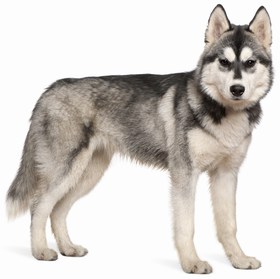 Siberian Husky | 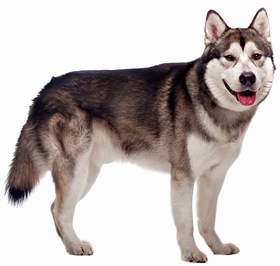 Alaskan Malamute | 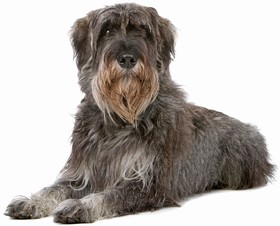 Giant Schnauzer | 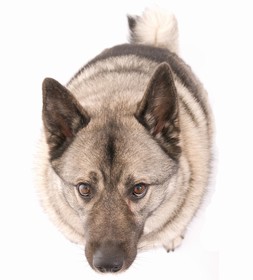 Norwegian Elkhound |


